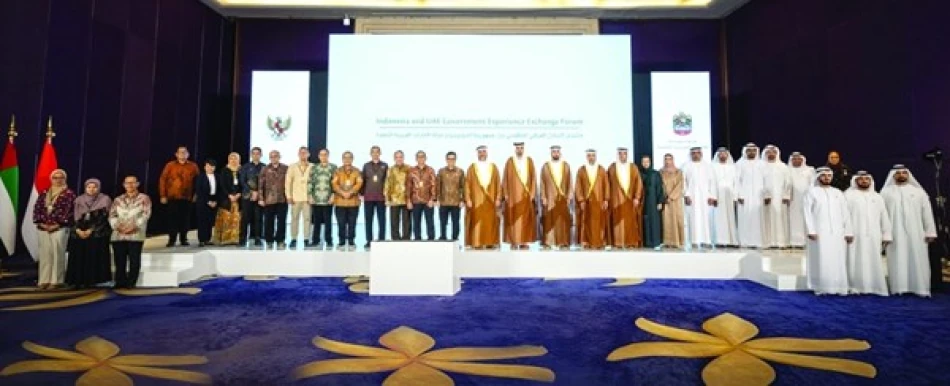
UAE and Indonesia Launch Executive Leadership Program and 10 Million Programmers Initiative
UAE and Indonesia Launch Ambitious 10 Million Programmer Initiative in Strategic Government Partnership
The UAE and Indonesia have unveiled a groundbreaking knowledge partnership that includes training 10 million Indonesian programmers and developing executive leadership capabilities, marking a significant shift toward tech-driven governance cooperation between emerging economies. This initiative positions both nations to compete more effectively in the global digital economy while reducing dependence on Western technology partnerships.
Beyond Traditional Diplomacy: A New Model for South-South Cooperation
Speaking at the Government Knowledge Exchange Forum in Jakarta, UAE Minister of Cabinet Affairs Mohammed Abdullah Al Gergawi emphasized that this partnership represents a new paradigm for international cooperation focused on human capital development rather than traditional trade or investment deals. The initiative reflects the UAE's strategy to export its government modernization expertise while Indonesia seeks to accelerate its digital transformation agenda.
This approach mirrors successful models seen in Singapore's technical assistance programs across Southeast Asia, but with a distinctly Middle Eastern perspective on rapid government digitization. Unlike Western aid programs that often come with political conditions, this UAE-Indonesia partnership appears designed for mutual benefit without ideological strings attached.
The Economics Behind 10 Million Programmers
Market Implications
Training 10 million programmers in Indonesia—a country of 270 million people—could fundamentally reshape Southeast Asia's technology landscape. For context, India's entire IT services industry employs approximately 4.5 million people, suggesting Indonesia's ambitions could create a regional tech powerhouse that competes directly with established players.
From an investor perspective, this initiative signals several opportunities. Indonesian tech startups could benefit from a dramatically expanded talent pool, while multinational corporations may find Indonesia increasingly attractive as an alternative to India and China for software development and digital services.
Government Modernization as Export Strategy
The UAE's involvement represents a calculated move to establish itself as a government technology consultant to emerging economies. Having successfully digitized its own public sector—achieving some of the world's highest e-government rankings—the Emirates now sees knowledge export as both a soft power tool and potential revenue stream.
Strategic Context: Why This Partnership Matters Now
This announcement comes as both countries face pressure to diversify their economies. Indonesia, despite being the world's fourth most populous nation, remains heavily dependent on commodity exports. The UAE, while successful in becoming a regional business hub, seeks to reduce its reliance on oil revenues and establish new forms of economic influence.
The timing also reflects broader geopolitical trends. As US-China tech tensions continue, middle powers like the UAE and Indonesia are creating alternative pathways for technology transfer that avoid superpower rivalries. This could become a template for similar partnerships across Africa, Latin America, and Asia.
Implementation Challenges and Realistic Expectations
While ambitious, the 10 million programmer target faces significant practical hurdles. Indonesia's current higher education system produces roughly 600,000 graduates annually across all fields. Even with intensive coding bootcamps and online training programs, reaching 10 million programmers would require unprecedented coordination between government, private sector, and educational institutions.
However, the scale itself may be the point. By setting an audacious target, both governments signal serious commitment to digital transformation while creating momentum for related investments in infrastructure, education, and regulatory reform.
What Success Looks Like
If executed effectively, this partnership could establish Indonesia as Southeast Asia's primary technology hub while positioning the UAE as the go-to advisor for government digitization in the developing world. For global markets, success would mean a new major player in software development, potentially offering competitive alternatives to existing outsourcing destinations.
The real test will come in execution. Both countries have demonstrated capacity for large-scale government initiatives, but this partnership's success will ultimately depend on sustained political commitment, adequate funding, and the ability to adapt programs based on early results rather than rigid adherence to initial targets.
Most Viewed News

 Layla Al Mansoori
Layla Al Mansoori






